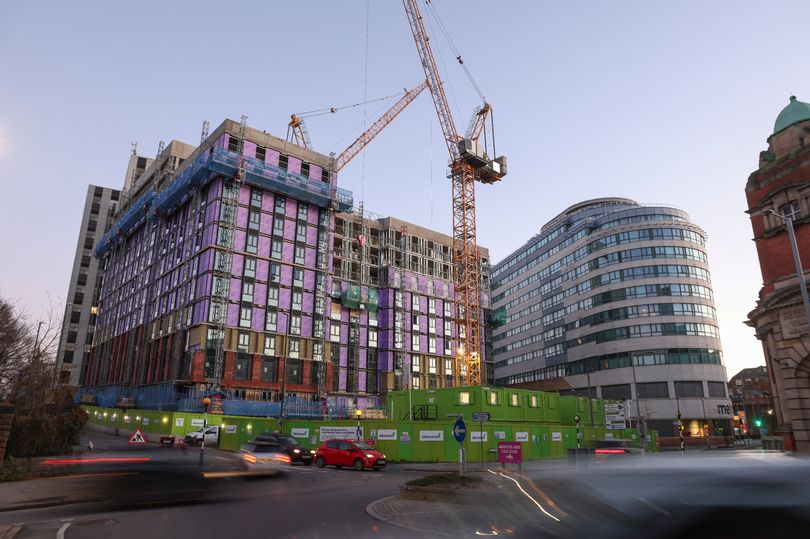Unprecedented vacancy in Nottingham student housing as demand declines

Changing Dynamics in Nottingham's Student Accommodation Market
The student accommodation market in Nottingham is experiencing a noticeable shift, with demand showing signs of cooling. Recent data reveals that the city has seen its highest number of empty flats since records began, raising concerns among local authorities and developers. Nottingham City Council has noted that it is becoming increasingly unlikely that the annual growth in student numbers will be sufficient to fill both existing spaces and the new developments being constructed.
As a result, some of the city's older accommodation blocks may exit the market altogether, as they are re-purposed for different uses. The University of Nottingham acknowledges that student numbers will fluctuate over time but emphasizes the importance of maintaining enough housing to meet demand.
Despite these challenges, developers behind major student accommodation projects remain confident in the city's market. Councillor Neghat Khan, leader of Nottingham City Council, highlighted that there are important shifts happening in the sector. He pointed out that recent surveys indicate rising vacancies in purpose-built student accommodation (PBSA) blocks, with rents decreasing and developers offering more discounts. This trend reflects a cooling in demand, which the council is closely monitoring.
Rising Vacancy Rates and Changing Trends
The vacancy rate in PBSA blocks in Nottingham saw a significant increase last year, driven by a decline in international students and a rise in students choosing to live at home while studying. Since 2014, the city council has conducted an annual occupancy survey of the PBSA market. For the academic year starting in September 2023, the vacancy rate was just 3.5%, but it jumped to 11.2% for the following academic year—the highest figure recorded in over a decade.
This shift has made the market more challenging for providers, who are now under pressure to lower rents to attract more students. However, this could also lead to more students moving out of shared housing, easing pressure on family homes in areas such as Lenton and Radford.
In 2023, the council launched a plan to prevent certain parts of Nottingham from being dominated by students. The goal was to encourage more students to live in PBSA rather than Houses in Multiple Occupation (HMOs). However, due to the increased vacancy rates, the council has paused the creation of a formal planning document for PBSA developers, citing reduced interest in building more sites beyond those already in progress.
Ongoing Projects and Future Plans
Despite the current challenges, several major student accommodation projects are still in the pipeline. One such development includes around 790 bed spaces on Alfreton Road, set to be completed by September 2025. Another project at The Island Quarter will add nearly 400 bed spaces after the initial 693-space block opened.
Conygar, the developer behind The Island Quarter, remains confident in the long-term value of providing student accommodation in the area. They are working closely with the city council and universities to ensure their developments meet local needs. Similarly, the Vita Group has announced plans to convert an abandoned police and fire station into a student accommodation site, potentially offering over 500 beds across two buildings.
However, the council believes that even if some of these projects are completed, the overall supply of PBSA may not keep up with student demand. A survey suggests that even if only 40% of approved schemes are delivered, student numbers would need to grow by 4% annually to match supply. With current student numbers stagnating or declining, this growth appears increasingly unlikely.
Preparing for the Future
Looking ahead, the council predicts that vacancy rates will likely remain high for the next academic year. As a result, all PBSA schemes should be designed with flexibility in mind, in case they are repurposed for other uses. The council’s report highlights that the increasing number of vacant units is making the PBSA market more competitive, putting pressure on providers to limit rent increases, improve facilities, or offer incentives to attract students.
Some smaller, older, or less well-located PBSA schemes may consider exiting the market, leading to potential applications for re-purposing. This trend will need to be monitored to ensure alternative uses are appropriate.
The University of Nottingham has praised the collaboration between the city council and Nottingham Trent University in shaping the student living strategy. They believe this partnership has helped avoid the issues seen in other cities where demand outstripped supply. The universities continue to play a key role in advising on the design of PBSA schemes to ensure they meet student needs and make such accommodation more attractive.
Student numbers may naturally fluctuate, but the current trend of falling rents indicates that the market is aligning with demand. This helps reduce costs for students and other renters while supporting efforts to return more on-street housing to local families.
Post a Comment for "Unprecedented vacancy in Nottingham student housing as demand declines"
Post a Comment